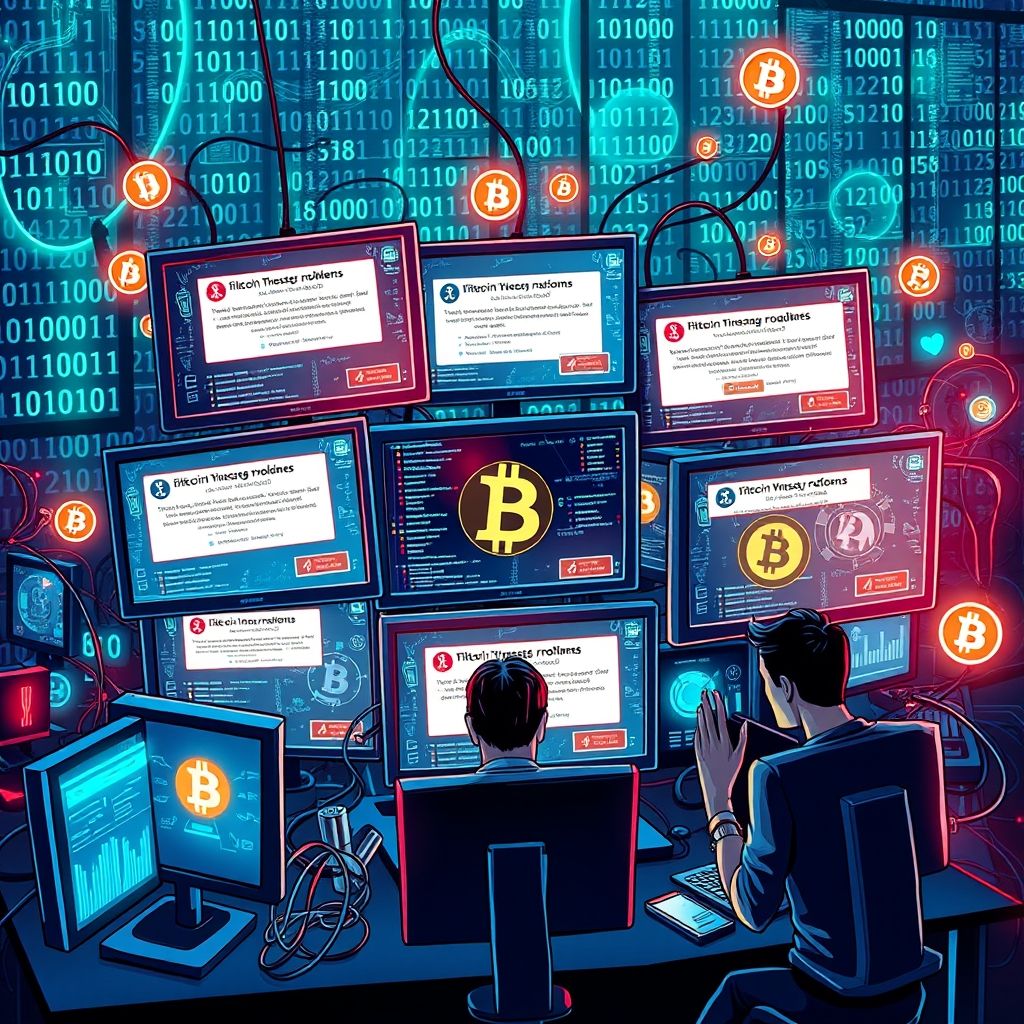What are the common issues with Bitcoin transactions?
Common Issues with Bitcoin Transactions: What Every User Needs to Know
Ever tried sending Bitcoin and felt like your transaction hit a roadblock? You’re not alone. As incredible as the crypto world is, it comes with its quirks—especially when it comes to transactions. Whether youre a seasoned trader or just dipping your toes into digital assets, understanding these common issues can save you time, frustration, and perhaps a few lost coins.

The Slow Pace of Confirmations
Bitcoin’s network can be quite deliberate. Unlike instant messaging, a Bitcoin transaction might sit waiting for confirmations for anywhere from a few minutes to several hours, depending on network traffic and fee settings. Imagine sending money through a traditional bank on a busy day—it’s not exactly quick, but with Bitcoin, sometimes it’s even more unpredictable. Users often face disappointment when their transactions get stuck, especially if they didn’t attach a sufficiently high fee to prioritize confirmation.
Why does this happen?
It’s all about block congestion. When too many transactions flood the network, miners pick those offering the best fees first. During peak times, simple transactions without incentives can be left in limbo, delaying transfers and complicating real-time trading needs.
High Fee Fluctuations
Speaking of fees, their volatility can catch users off guard. Certain days, fees surge—sometimes by a factor of ten or more—making small transactions less cost-effective or even uneconomical. Think of it as surge pricing at a taxi stand, but for digital assets. For traders or casual users, paying a hefty fee just to send Bitcoin might eat into profits or cause delays if not monitored carefully.
The impact on traders
In volatile markets like forex or stocks, transaction costs matter, but crypto’s fee swings can be particularly disruptive. For anyone leveraging leverage or engaging in rapid trades, these charges can eat into margins or make short-term plays riskier.
Double Spending & Replay Attacks
While Bitcoin boasts strong security, no system is entirely free from threats. Double spending—where the same coins are spent twice—is a concern, especially with delayed transactions or during network forks. In scenarios where transactions aren’t properly confirmed, malicious actors could attempt to double-spend, leading to potential losses.
What’s the solution?
Using reliable wallets and waiting for confirmed blocks reduces this risk significantly. And understanding how chain splits (forks) might affect your transaction’s integrity is vital, especially for high-stake trading on decentralized platforms.
Network Congestion & Scalability Problems
The Bitcoin network, as innovative as it is, faces scalability hurdles. When transaction volume skyrockets, network congestion slows down settlement times and inflates fees. This challenge isn’t unique to Bitcoin—its part of a broader debate about blockchain scalability, and solutions like Lightning Network and sidechains are emerging to address this.
The future outlook
Decentralized finance (DeFi) is pushing these boundaries further, with innovations like smart contracts and Layer 2 solutions promising faster, cheaper transactions. But the transition isn’t seamless; duplicated or failed transactions have been issues, requiring traders to stay alert.
The Role of Technology & Security in Modern Trading
In the evolving landscape of web3 finance, advanced technology plays a pivotal role. Real-time chart analysis, AI-driven trade signals, and multisig wallets boost security and efficiency. But as transactions become more complex, new challenges—such as smart contract vulnerabilities—also surface.
Trading across multiple assets like stocks, forex, commodities, and cryptocurrencies allows for diversified strategies. Yet, with great leverage comes the risk of rapid losses, especially on volatile assets. Maintaining a balance between leveraging tech innovations and risk management strategies, such as setting stop-loss limits or using conservative leverage, can help traders navigate uncertainties.
Industry trend
Decentralized finance is shaping the future—smart contracts and AI-powered algorithms are making trading smarter, faster, and more autonomous. Still, they come with their own hurdles—bugs, hacking risks, and regulatory grey areas—that need careful handling.
What Does the Future Hold?
As decentralized finance continues to evolve, newcomers and veterans alike will benefit from innovations like automated trading bots, more secure Layer 2 solutions, and smarter AI integration. The key? Staying informed, adopting robust security practices, and understanding how fee structures and network conditions can impact your trades.
In an environment where speed, security, and cost-efficiency matter, Bitcoin’s transaction issues serve as a reminder of the ongoing balancing act—between decentralization and practical usability.
Stay ahead in the crypto game—because managing these issues is your gateway to smarter, safer transactions in the booming world of digital assets.